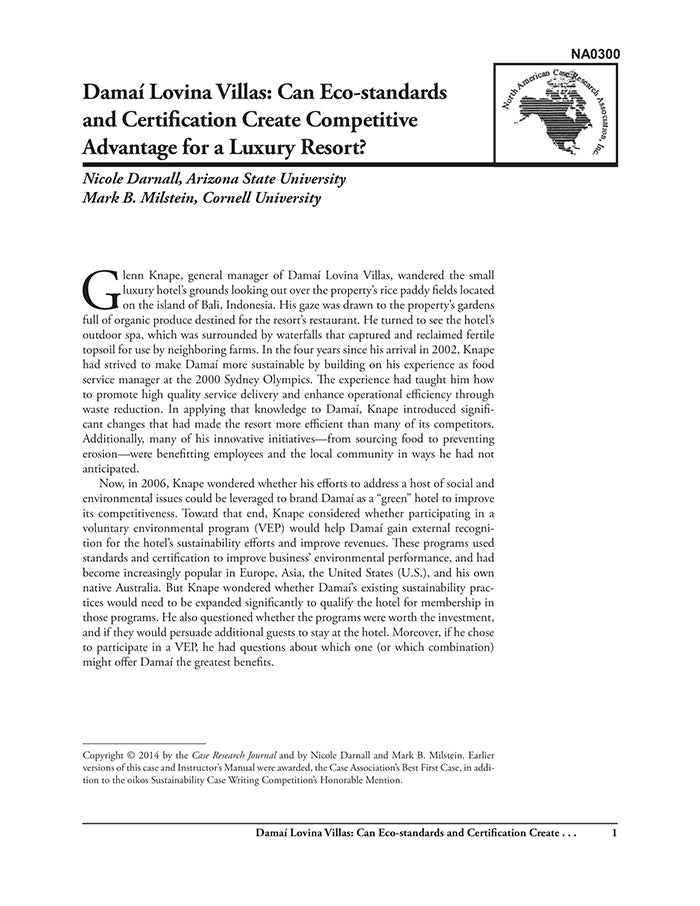Damaí Lovina Villas: Can Eco-standards and Certification Create Competitive Advantage for a Luxury Resort?
受取状況を読み込めませんでした
The general manager of Dama Lovina Villas, a boutique hotel located in northern Bali, wants to strengthen the hotel's competitive position by increasing utilization rates beyond the hotel's 65% occupancy. The central question that the case poses is whether leveraging an organization's sustainability activities, and participating in a voluntary environmental program (VEP) that promotes standardization and certification, is a reasonable vehicle to do so. This case considers what sustainability means in the context of a specific company, including issues related to value creation stemming from efficiency and productivity, reputation and legitimacy, innovation and repositioning, and strategic visioning opportunity framing. It presents an assessment framework (1) to evaluate a firm's environmental and social activities, (2) to assess the sustainability activities of various VEPs, and (3) compare the two to determine whether and how a company's sustainability programs align with the choices of VEPs under consideration. The framework creates a foundation to assess whether VEPs can offer strategic competitive advantage, and at what cost. The case is intended for an MBA or advanced undergraduate course to explore issues around strategic differentiation and standardization and strategy-environment fit, as well as courses dealing with topics related to sustainable enterprise, corporate social responsibility, international management, hospitality or hotel management, and eco-tourism.
【書誌情報】
ページ数:20ページ
サイズ:A4
商品番号:HBSP-NA0300
発行日:2015/1/12
登録日:2015/2/5


